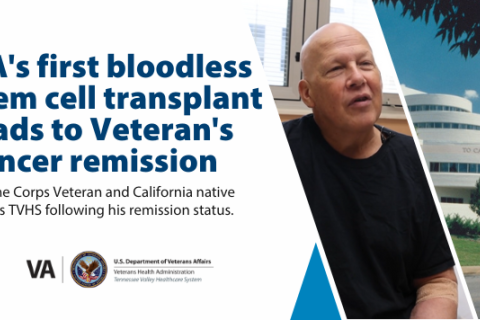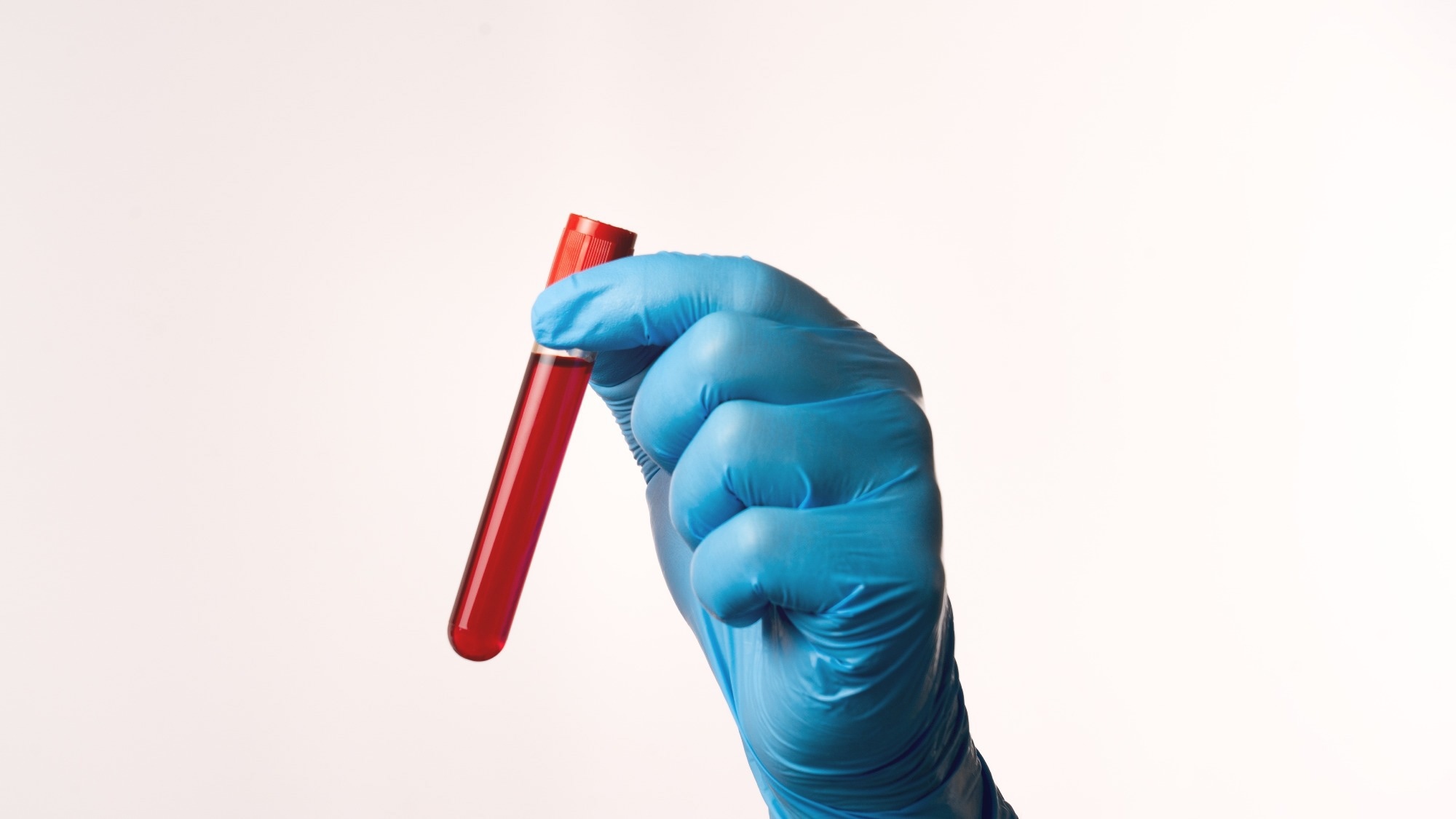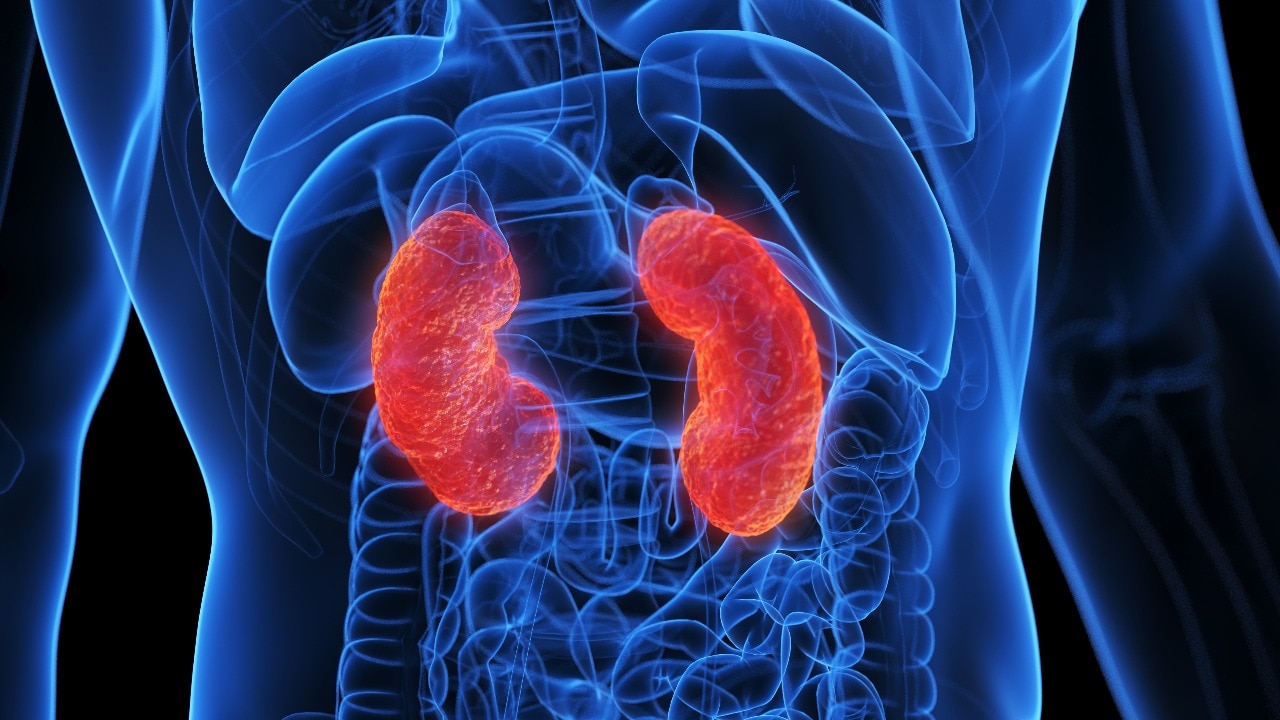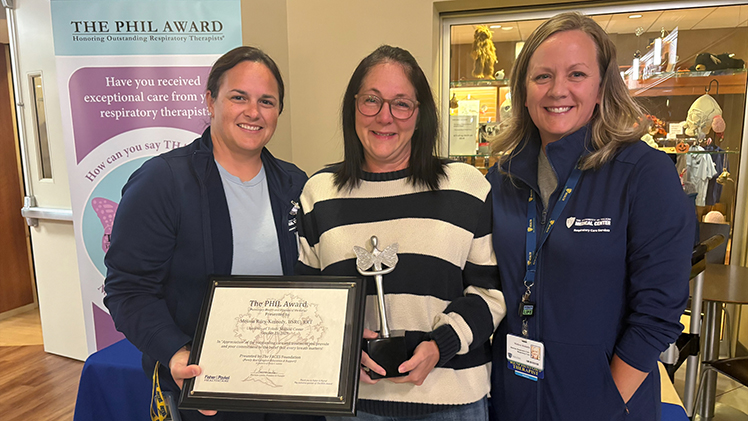VA’s First Bloodless Stem Cell Transplant Leads To Veteran’s Cancer Remission | VA Tennessee Valley Health Care

Earlier this year, VA Tennessee Valley Healthcare System (TVHS) performed the first-ever bloodless autologous stem cell transplant in the VA system.
Keith Cody, a Marine Corps Veteran, walked out of TVHS in remission and caught a flight home to California, something he thought would not be possible.
“I already feel much better. They’ve told me that I still need more time to get my energy back, but I do feel much better already,” Cody said.
As Cody’s cancer progressed while he was in California, he underwent extensive chemotherapy and suffered from its side effects. With this, he decided to ask more about bloodless transplants that could improve his quality of life.
Stem cell transplants treat blood cancers like leukemia, lymphoma, multiple myeloma, and germ cell cancers. The patient’s own stem cells are collected during chemotherapy when bone marrow releases them into the peripheral blood. These cells are then concentrated and transplanted to replace the diseased bone marrow.
Typically, stem cell transplants can cause a significant drop in blood count due to the impact on the bone marrow, which produces blood cells. This often requires blood or platelet transfusions as part of replacement therapy.
However, Cody opted for a bloodless transplant due to personal reasons.
Dr. Bhagirathbhai Dholaria, associate professor of medicine in the Division of Hematology Oncology Department of Medicine at Vanderbilt University, had previously performed the procedure at Vanderbilt. Taking this knowledge, he trained the TVHS team to follow similar protocols after receiving Cody’s request.
“[For the bloodless autologous stem cell transplant], we don’t give any red cell transfusions, platelet transfusions or any plasma product. And we use a set intervention before patients come to Nashville to optimize their blood count, such as iron infusion…” said Dholaria, TVHS hematology attending physician.
After opening its stem cell processing lab, TVHS became the only VA in the nation with a comprehensive stem cell transplant program, including apheresis, processing and infusion labs housed internally. Following the Seattle VA Medical Center, TVHS is the second VA to start a stem cell transplant program.
In addition, no VA facility has ever performed a bloodless transplant until now. With Cody becoming the first patient in April 2025, there was measurable success.
“Number one, did it achieve myeloma control? Because that’s the whole reason we are doing this procedure. And in this case, Mr. Cody is in a complete remission, one month after stem cell transplantation,” Dholaria said.
Even though this was the first VA procedure, the process was very easy and comforting, according to Cody.
“After talking with him [Dholaria]…the level of confidence that they had in this procedure was kind of what made it a little easier for me to decide to make the journey and come here…the way they conveyed it to me, I felt confident in the care I was going to get,” Cody said.
TVHS is also the only VA that performs CAR T-cell therapy, a type of immunotherapy used to treat certain types of blood cancers like lymphoma and leukemia. This therapy allows the immune system to target and attack cancer cells, and TVHS receives referrals all over the country, including Puerto Rico.
“Stem cell transplant is a very important part of treating some blood cancers. And for some blood cancers, it’s actually curative. And for others, it’s a life-extending procedure and gives them many years to enjoy life and spend time with their families,” said Stephen Cernawksy, TVHS nurse practitioner.
Cody urges other Veterans to ask questions about the stem cell transplant program, especially at TVHS, as it has improved his quality of life.
“The whole care team here…They’re very, very caring people. And everybody that we came across enjoyed the interaction, it’s actually sad to leave people behind that you really felt treated you like family. They’ve been special,” Cody said.
TVHS will take this success and experience to continue innovations in biotherapies, striving to offer the best care and options for Veterans nationwide and leading the forefront in stem cell cancer treatment.
“[With this success,] it makes us much more available now to help other patients who, for personal reasons, don’t want to have transfusions, blood or platelet transfusions, so [we have] a bigger population of people to treat and help,” Cernawksy said.
Watch Cody’s full testimony here.
link







